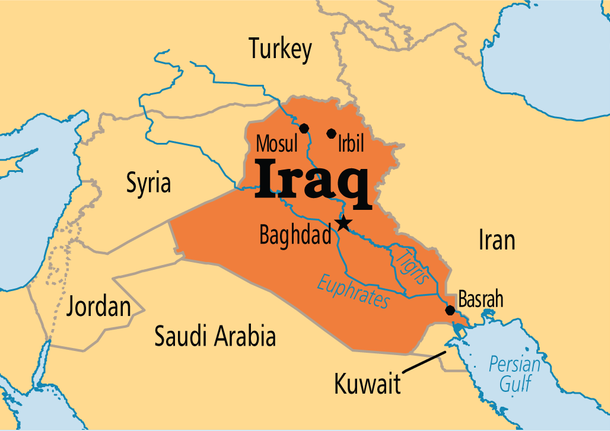






What The Los Angeles Times did not report was what I had told their Washington, D.C. bureau after reading the story: (1) that the Jeddah onsulate was not a State Department post but an intelligence services operation; (2) that the Central Intelligence Agency (CIA) routinely demanded (and got) visas for sleazy characters with no ties to either their home country or Saudi Arabia; (3) that these vile people were terrorists recruited by U.S. intelligence officers along with Osama bin Laden, then a CIA asset.
With the help of non-State Department officials, i.e., Consul General, Jay Philip Freres (retired and living in Clearwater, Fla.), the head of the Political/Economic Section, Eric L. Qualkenbush (retired and living in Findlay, Ohio), the Political Officer, Henry Ensher (currently assigned to D.C. and living in McLean, Va.), a “Commercial Officer”, Paul Arvid Tveit (retired and also living in McLean, Va.), the Chief of the Consular Section, Justice (given name) Stevens (whereabouts unknown), and a “part-time” Consular officer, Andy Weber (last seen on the PBS program “Bio-Terror”), they were sent to America for training in blowing things up and shooting things down. Afterwards, they were sent on to Afghanistan to murder Soviet soldiers.
It seems pretty clear that they and people that they had trained are now pursuing their own goals (and most likely U.S. foreign policy interests) in helping destabilize Lebanon, Iraq, and Afghanistan. Their next target may be Iran.
Having been Commercial Attaché at the American Embassy in New Delhi, India (a post with a goodly number of CIA and National Security Agency, NSA, staff) and twice in Stuttgart, Germany, a Consulate with successive Consuls General sent out by the intelligence services, Douglas Jones and Day Olin Mount (both now retired, whereabouts unknown), I was still flabbergasted at the blatant disregard (and wholehearted contempt) for the Immigration and Nationality Act and the Foreign Affairs Manual (the State Department’s Holy Book governing, inter alia, visa issuance). And it wasn’t until I was fired for questioning these spurious visa practices that I learned what was really going on and how the system worked–to America’s detriment.
Despite being given ample notice, I still did not, in fact, could not, see the coming disaster–because I trusted my government. Consider:
My predecessor at Jeddah (Greta C. Holtz, now assigned to Washington) simply did not answer my letters asking about the situation at the Consulate, later telling me that she was “too upset” to respond. (Once there, I learned that she had been repeatedly threatened with losing her job over visa refusals, but, later, was apparently “wised-up” about the situation since she then stopped her complaining.)
The then-American Ambassador to Saudi Arabia, Walter Cutler (who went on to head the Meridian International Center in Washington, D.C. for 17 years, promoting U.S. ties with Iran), spent 45 minutes with me before I left the U.S. In the meeting, he told me about all the problems my predecessor had caused him in refusing visas to unqualified people. When I asked the State Department Desk Officer for Saudi Arabia
about this, he replied that he didn’t know, “Cutler was just a queer duck”.
Again, while still in D.C., I had a chance conversation with a staff member (Ellen Goff) at the Executive Office of the-then Bureau for Near East/South Asia, learning that there were serious but unspecified problems connected with visa issuances at Jeddah.
Upon my arrival, I was fêted for being a distinct change from my predecessor (who still has her job and is a high-ranking Foreign Service officer). Not long afterwards, things swiftly reversed themselves, and I was constantly browbeaten by the Consul General, Jay Freres, about refusing visas to unqualified applicants.
It was not unusual for expediters carrying visa applications to the Consulate for their employers to tell me I could issue the visa then and there or, if I refused, later on, after the Consul General ordered me to.
I was told by a contact outside the Consulate (Nestor Martin, whereabouts unknown), whom I now believe worked for the CIA, that if I spoke one word about the nefarious visa activities to a team inspecting the Consulate’s operations, I would lose my job. One of the Inspectors (Joseph P. O’Neil, later retired, but afterwards assigned to various posts in Central Asia) came to me, questioned me in detail, while insisting I had to answer and that he would protect me. I did and I later lost my job.
The Counselor for Consular Affairs in Riyadh, Stephanie Smith, (now retired and living in Florida) told me that things in Jeddah were very serious and that, on my way to my next assignment, I should speak about the disconcerting situation with the Bureau for Consular Affairs–which then professed absolutely no interest when I did so.
 After being notified that the State Department intended to pitch me out, I contacted that agency’s Inspector General and the Bureau of Diplomatic Security (DS). DS agents, including Travis A. Moran, told me that I simply had had a “personality conflict” with the Consul General (who, astonishingly enough, had had a visa signature plate made and had sat at the visa window interviewing applicants, a function far below his
After being notified that the State Department intended to pitch me out, I contacted that agency’s Inspector General and the Bureau of Diplomatic Security (DS). DS agents, including Travis A. Moran, told me that I simply had had a “personality conflict” with the Consul General (who, astonishingly enough, had had a visa signature plate made and had sat at the visa window interviewing applicants, a function far below his
pay grade).
At the time (before I spoke with the journalist Joe Trento, a retired government official, and a man connected to a D.C. university (not named for their safety) and learned what was really going on), I had thought the whole problem was visa fraud, i.e., someone was paying good money for a chance to come to the U.S. Fraud like this is every consular officer’s nightmare and is anathema at State. According to the Bureau of Diplomatic Security’s website: “[V]isa fraud is a federal offense punishable by up to 10 years in prison and a fine of $250,000. If the offense is connected…to international terrorism [the sentence is increased to 20 years].”
But, when I said “fraud” to people charge with investigating it, I was told I had a personality conflict. And I became unemployed.
There you have it. The United States of America, whose diplomatic posts are too often outposts of the CIA and NSA, was running (and, from what I can see) is likely still running a visas for terrorists program, while blaming the rest of the world for causing disasters of its own making. According to a former CIA Station Chief and a member of State’s Inspector General’s office, both of whom I wish to protect, at least one-third of the people who claim to work for the Department of State in reality work for one of the many U.S. intelligence agencies. In my limited experience, I would be inclined to raise that proportion which, I am inclined to believe, is increasing (In Jeddah, all but three of the 20 or so U.S. staff worked for intelligence offices).
Despite my best efforts, no other agency of the United States government ever wanted to deal with this matter. My Freedom of Information Act lawsuit about the reasons for my dismissal was sealed (and shut down) as a threat to national security. The Government Accountability Office took no interest in what I told them about the issue. The FBI ignored my calls, even the ones after September 11, 2001. Congress then and later also took an ostrich’s view of my charges with a staffer on the House Foreign Affairs Committee once telling me that we needed the CIA.
Over the years, I wrote ever more pointed letters to Congressmen dealing with the intelligence services: to John D. Rockefeller IV, then Vice Chairman, U.S. Senate Select Committee on Intelligence; to Jane Harman, then Ranking Member, U.S. House of Representatives Permanent Select Committee on Intelligence; and to Nancy Pelosi, then Democratic Leader of the House of Representatives. I also wrote to Tom Davis, now Ranking Republican on the Committee on Oversight and Government Reform, U.S. House of Representatives, who was opposing legislation to protect national security whistle-blowers.
In those missives, I named the intelligence officers who ran the Visas for Terrorists Program and instructed the Congressmen on how to contact them. But, no action was ever taken, no question was ever raised, giving rise to my view that they knew all about the matter. And chose to ignore it.
Additionally, in the hopes of getting some action, I published several articles on the Visas for Terrorists Program, “The Hand That Rules The Visa Machine Rocks The World” in a now-defunct magazine during the Winter of 2001, and “The Visas for Terrorists Program” in Global Outlook (Triple Issue No. 11, Spring/Summer 2006). While the concept was picked up by Project Censored (25 Runners Up) 2002, and my interviews are still on the Internet, no uproar has yet been generated and no governmental action has resulted.
Why not? Any investigation would mean indictments. It would mean jail sentences. It would mean political accountability. And, as we can see from the illegal and unconstitutional wars in Iraq, Afghanistan, and, soon, Iran, no one, whether voter or politician or official, wants to deal with an uncomfortable and rather dangerous reality. It would reflect on their judgment (or lack of it) and, if faced squarely, would cause them to believe that their lives have been a lie.
J. Michael Springmann is a DC-area attorney. He previously spent 20 years in the federal government, most recently as chief of the visa section at the U.S. Consulate in Jeddah, Saudi Arabia.

But what of those who survived the sanctions, the bombed-out housing, the devastated water-treatment facilities, the wrecked power plants, the collapsed bridges, and the wiped-out roads? The people who survived the “rules of engagement” devised by the War Department in peaceful Washington, D.C.? You know, the families whose front doors were kicked in by the new Crusaders, ready, willing, and able to shoot anyone whose looks they did not like?
Well, there are roughly 2 million of these who fled such situations, who have been forced out of their homes (or what’s left of their homes), to seek shelter and sustenance, where and when and however they might find them. And those are the ones still in Iraq.
There are also an estimated 2 million more who navigated the radioactive, poisonous, depleted uranium dust from expended U.S. munitions and found refuge in neighboring countries, lands such as Syria, denounced by the United States and Israel as supporting terrorism, and Lebanon, a country devastated and destabilized by American and Israeli pressures and policies. Unlike Israel and America, Syria, bleeding Lebanon, and nearby Jordan are poor countries, short of water, food, and resources, barely able to feed and shelter their own people.
Iraq once numbered about 25 million inhabitants. The approximately 4 million “internally displaced” and “refugees” together comprise about 15% of the population. The ones abroad are mostly members of what was once the Arab world’s most educated and populous middle class, the very people needed in any country for stability and growth, the very people that a devastated Iraq cannot afford to lose.
American policy towards Iraq has been equal-opportunity terrorism: the 2 million Chaldean Catholics, Muslim Shii, Muslim Sunni, and others, all left because of fear: fear of death from above, fear of death threats, fear of murder, fear of kidnappings. They also feared religious violence engendered by U.S.-sponsored militias, U.S.-backed sects of one kind or another–or of American-sponsored death squads designed to trigger Hatfield/McCoy-style internecine violence.
This is an unfortunately familiar pattern. The American South saw it during the War Between the States. Germany and Japan saw it during the 1939 war. It is a pattern designed to dehouse, deculturalize, destabillize, and destroy a country and its people. In this case, it is a country and a people who invented the wheel, who invented writing, who invented accountable government. Iraq is a country and a people with 5,000 years of recorded history behind them, a history reduced to dust and ashes, like the Mesopotamian treasures of the Iraqi National Museum in Baghdad.
That’s the general. Here’s the specific.
One Story
Our interlocutor is an Iraqi refugee who knows first hand how badly things have gone wrong. To save herself, she managed to make it out of the Black Land, first to Jordan, then the United States. For our contact’s safety and the safety of her family, still at the mercy of unknown and unknowable death squads, she will remain nameless. She can tell you, though, that she is educated with a university degree in linguistics and a certificate as an English translator. She is Arab, she is Muslim, she is the daughter of a Sunni and a Shii.
After the American invasion and occupation of  Iraq, in violation of the federal Constitution and the Law of Nations, our contact told us that it was a common practice for mysterious people to turn up at the doors of Iraqi houses and “ask” the inhabitants to leave. Then, typically, a strange family would move in, taking ownership and control of the original owner’s effects. No one knew who these people were, no one knew who had done the asking. In fact, no one wanted to know, it was far too dangerous to ask awkward questions. The police or what was left of the authorities, once the Americans and their Coalition Provisional Government had dissolved the civil power, simply stood by and did nothing to help those forced out of their homes.
Iraq, in violation of the federal Constitution and the Law of Nations, our contact told us that it was a common practice for mysterious people to turn up at the doors of Iraqi houses and “ask” the inhabitants to leave. Then, typically, a strange family would move in, taking ownership and control of the original owner’s effects. No one knew who these people were, no one knew who had done the asking. In fact, no one wanted to know, it was far too dangerous to ask awkward questions. The police or what was left of the authorities, once the Americans and their Coalition Provisional Government had dissolved the civil power, simply stood by and did nothing to help those forced out of their homes.
These involuntary “donors” became the Displaced. They had to stay in Iraq because they had no money to leave the country, they had no funds to bribe local officials in nearby Jordan to permit their entry if they did. They were not allowed to work in Jordan because they could not get permanent residence, although, if you had the equivalent of US$150,000 to put at the disposal of the Jordanian government, you could stay in the Hashemite Kingdom.
If, somehow, you got to Jordan, you couldn’t afford a place to live because you were not allowed to work. And you also couldn’t afford medicine or a doctor. Our interlocutor, reliant on saved funds, was sick for two months because she didn’t have the equivalent of US$40 for antibiotic injections. She recovered only when an Iraqi doctor in Jordan managed to get some medicine from the local hospital for her.
If you, like our translator, made it to the Hashemite Kingdom, created as the result of British policy towards its League of Nations mandate in the 1920s, you had to leave every three months to renew your temporary residence. This exposed you to murder, rape, and other violence along the road during the 10-hour trip to Iraq. Unlike I-95 in the United States, this thoroughfare was laid out in the middle of nowhere. The return was equally bad, with the traveler still a moving target. And, at the Jordanian frontier, there was an added “fillip”: the border guards demanded a US$500 bribe to admit you.
If you were fortunate and had the money, all you usually had to contend with was harsh looks by the men with the keys to the Kingdom. If, like our interlocutor, you were unfortunate, you could be sent back with no explanation to try again, making a fruitless 20-hour round-trip. She endured this three times. On some occasions, if Fortuna smiled, you could pay the bribe in US$100 installments–on top of what you shelled out for food and rent. Then, there was the “required” US$50 blood test also demanded for admittance (something the U.S. Department of Homeland Insecurity has not yet discovered.)
Our contact did this for two and a half years.
And what did she trade for her life? It wasn’t a mess of pottage.
In a peaceful Middle East, there is less stress and a lower cost of living, along with familial and community support for individuals. Here, in the World’s Only Remaining Superpower, there are shoddily-built houses, high taxes, complicated licensing laws, and a lawsuit to remedy every imagined slight. There is also out-of-control Capitalism, with banksters firmly in control of society, turning the American dream into the American nightmare–for profit.
If you’re an Iraqi refugee and get to the United States, we were told that the federal government provides you with four months of support. During that time, you must become fluent in the King’s English, find a job, obtain a place to live, get a driver’s license, buy a car, and…and…and… Some people, caught between a rock and hard place, have gone back to Iraq, to the war without end, and, with the unknown and unknowable killers, to a life that is nasty, brutish, and short. If you’re an American citizen and lose your job, as far too many have recently done, it’s hard enough to find a new position. What’s it like for the Iraqi who no speaka da English and who hasn’t a clue as to how to start electricity service in his apartment? If the refugee does get a job, he’s the last hired and the first fired. And he still must pay the rent and the electric bill and the gas bill, and the water bill–if he’s fortunate and someone or some organization helps him navigate the unfamiliar bureaucracy, by no means a certainty.
Our contact told us that she wanted to tell part of her story because she’s tired:
of linking herself to the Americans
of the repercussions of that relationship
of being alone
of not having her own space
of not having any connection to other people, even if it’s only sharing meals
of being separated from her family
of not having her own family
of leaving Iraq and never being able to go back.
Working for the United States in Iraq, 12 to 14 hours a day, 7 days a week for $450 a month helped keep food on the table but also left her and her family open to death threats and ruined her reputation. After all, no good Arab girl spends such an amount of time with strange men, particularly soldiers. Even in the U.S., the Iraqi community looks askance at such a history and at a woman living alone–so she stays away from her fellow countrymen and their gossip, intensifying her anomie.
A Second, Related Story
Another Iraqi refugee, a man, told an all-too similar tale. He didn’t favor Saddam Hussein and wanted to work with the American government to help rebuild Iraq, making it a better country. Did he succeed? As the Arabs say, “La, mu mumkin”. (“No, not possible”.)
Working with civil affairs units, the field commander’s link to the civil authorities in his area of action, our contact told us that he had liked working with them to reconstruct Iraq. He felt that these soldiers, unlike combat troops, were motivated by their compassion and desire to restore Iraq to what it had been before the attack and invasion. Our refugee contact noted that he worked with the men who sought to restore services such as water and electricity. Translating and helping oversee projects, he gradually learned that the U.S. did not do as much as he had hoped for. The lengthy “to do” lists never got funded and he began to develop the feeling that his job was beginning to endanger not only himself but his family, a cornerstone of life in the Arab world. He then swung 180 degrees from his initial support for and enthusiasm about the American invasion, not unlike many Iraqis who became frustrated by the Americans and who later turned their anger on those associated with the U.S. occupation. He and other unfortunates became the direct targets of gangs, i.e., those, such as former Ba’ath ruling party members or those, who, for whatever reason, hated the United States and anyone associated with its representatives in Iraq.
Exposed and chased by outlaws on two occasions (once escaping only through a deliberate car crash), he quit his job while in his last year of college. Thinking that cutting his ties to the Americans would damp down the furor, he found that his associates were still in danger because of their connections to him. One of his best friends, with whom he had started the last two semesters, had been murdered. Seeing the handwriting on the wall, underlined by 9 mm bullets, he and some friends fled to nearby Syria,. After four months there, his family advised him not to return. Buoyed by savings from his job with the U.S. government, he navigated Syrian society without incident. Even in Syria, he tried, he said, to avoid his friends for fear that their ties to the United States might subject them to unwanted interest by the intelligence services.
After some time, our interlocutor returned to Iraq to finish his schooling but could not discuss his flight because it would hamper taking final exams. After another friend had been ambushed and murdered, he rode cabs and public transportation, using circuitous routes. With American help, he armed himself and acquired a license to carry a pistol, itself a danger because the authorization was written in Arabic and English, tipping off anyone who stopped him that he was linked to the occupation authorities.
Speaking Out is Hard to Do
Like our first interviewee, this gentlemen decided to speak out because, as he put it, “Enough Is Enough!” People outside Iraq need to learn about the consequences of the war of aggression and people outside Iraq must begin to realize the depths of Iraqi suffering. He told us that his risk has ended but the agony of his family and of others still continues, with everyone still in jeopardy. He said that he can’t go home to visit his people and that Iraqis are still dying in unconscionable numbers.
But What About the Others? Syria, Jordan, Israel, and the United States
In an effort to be fair and balanced, we called the Embassies of Syria, Jordan, Israel, as well as the U.S. Department of State for their comments on the refugee crisis. As might be expected, the Syrian Embassy’s spokesman, reflecting the Ambassador’s straightforward approach to the refugee crisis, was most open, approachable, and informative. The Jordanian Embassy demanded written questions and, to date, has not responded to the ones we e-mailed. The Israeli Embassy’s Political Section sent us to a non-working number in their Public Affairs Office. And an official at the U.S. Department of State, speaking on background, told us how the refugees in Syria and Jordan were far fewer than we believed and that the United States had greatly increased the number it was willing to take, from 1,500 in Fiscal Year (FY) 2007 to 13,000 in FY 08 with plans to up that to 17,000 in FY 09.
Syria
Ahmed Salkini, the Syrian Embassy press spokesman, told us that the humanitarian crisis (and the American response to it) is staggering and nearly incomprehensible. There are roughly 1.5 million Iraqi refugees in Syria (8% of the Syrian population, clustered in and around Damascus) with about 500,000 more in Jordan. He said that the Bush Administration had demonstrated apathy towards the problem (equal to an influx of 24 million people into the U.S., just short of all the people living in Canada). Under Bush, the U.S. government simply sat on its hands or tried to ignore the tragedy. He hoped President Obama would take a second look at the issue. Mr. Salkini noted that, in dealing with the matter, there were long and short-term goals, first to eventually return the refugees to their homeland and, most pressingly, to deal with the immediate distress of the Iraqis at home and abroad: providing medical care, jobs, housing, etc. through use of governmental and international resources.
The Embassy spokesman noted that the Syrian government heavily subsidized the refugees, paying for health care, education, and security, adding that no refugee in his country had been killed by sectarian violence. Mr. Salkini did observe that Syria, regrettably, was beginning to impose a quota on Iraqi refugees, changing its once open visa policy. In the past, he said, no visas for Arabs had been required. But now, Iraqi visas are issued on a case by case basis, with criteria favoring the most vulnerable, including those listed as such by the United Nations High Commission on Refugees (UNHCR), and people whose admission would help both Syria and Iraqi, such as businessmen and merchants who can establish their own firms. With unemployment measured by Damascus at 10-12%, our contact noted that an open-ended policy of admitting Iraqi refugees would add more strains to an already-imperiled economy.
When asked if the U.S. policy on refugees was intended to weaken Syria, the Embassy spokesman stated that the Bush Administration was well aware of the burden on his country, and, instead of appointing competent individuals to deal with the issue, the White House fielded a team of amateurs (author’s words) such as former Maryland politician, Ellen Sauerbrey, who was chosen as Assistant Secretary of State for Population, Refugees and Migration . (In this capacity, Sauerbrey had primary responsibility for mis-handling the Iraqi refugee crisis, doing little of substance for the victims of America’s war.) Neither Bush nor Sauerbrey publicly recognized all that Syria had done for the exiles, Mr. Salkini said.
Mr. Salkini wanted to look forward, rather than backward, hoping that President Obama would realize that part of the issue is Iraq’s and the rest is the U.S.’s responsibility.
The State Department
As noted, a State Department official commented that there are fewer refugees in Syria and Jordan than were stated by the Syrian Embassy or the Villanova Law School’s April 2008 forum at the National Press Club in Washington, D.C., “The Iraqi Refugee Crisis”. The U.S. Department of State is assiduously working, he said, with the U.S. Agency for International Development (USAID), UNHCR, and the Red Cross, to alleviate refugees’ problems in Syria and Jordan. The U.S. preferred to work with international agencies rather than governments because they were generally well-run and organized, we were told. He added that refugees returning to Iraq are easy to measure but that it is hard to number those internally displaced by war in Mesopotamia. He added that non-refoulement (no return to a place where lives or freedom are threatened) is United States policy and that the Iraqi government is trying to persuade its people to return, proving small benefits such as jobs, housing, and money to those who do.
Our contact touched on U.S. visas for Iraqis who had worked for the American military, State Department, and contractors in the Black Land. The only requirement was that they had to have worked at least a year in order to be eligible. Unfortunately, with the visa in hand (obtained through the Embassy’s Consular Section), help in the United States didn’t extend very far, as our Iraqi interlocutor noted. They would be met at the airport here, given $400, and provided some basic counseling. In Sweden, by contrast, he said, Iraqi refugees get 2 years of networking assistance and support. U.S. State Department help lasts only for 60 days, then social services take over.
When asked if it were Israeli policy to destabilize Syria by influencing the U.S. government’s withholding of aid to refugees, the State Department official denied that idea, adding that America wanted to help the people who had worked with its government as translators as well as those in special categories such as Chaldean Catholics. The Department of State provided $150 million per annum for Iraqi refugee aid (with USAID handling the internally displaced). The U.S. government’s worldwide refugee budget, he said, totaled only $1 billion. Heretofore, the U.S. had been concerned with resettling Somalis and Burmese. Now, Iraqis have come to the fore. American policy for Iraqis, he commented, is to concentrate on helping the least likely to return home as well as the most vulnerable. But, the spokesman continued, the number of newly-required identity and security checks, along with the number of U.S. bureaucracies involved, tended to slow things down, especially in the “post 9/11 world”
The State Department’s spokesman denied that the Iraqi refugee crisis could be likened to the Palestinian “problem” because it wasn’t a struggle for land. He compared it to Vietnam where Malaysia, Singapore, and other Southeast Asian nations allowed a flood of refugees into their territory because the U.S. had promised to eventually take them in.
Noting that Syrian has proven generous to the Iraqi refugee population, State’s spokesman said that, despite past icy relations, it is getting easier to get into the country and talk to the refugees.
Finally, the State Department official told us that he expected little improvement in the number of Iraqi refugees admitted to the U.S. There is a worldwide cap of 70,000 refugee visas and to give more help to Iraqis would take refugee visas away from other nationalities. He said the burden of helping the Iraqis lies with Syria and Jordan.
In contrast, Michele Pistone, Professor of Law at Villanova University School of Law and Director of its Clinic for Asylum, Refugees, and Emigrant Services, hopes President Obama will change this situation. She said he is not lumbered by past U.S. policy mistakes, adding that refugee issues are too often tied to politics, such as in the aftermath of Vietnam, where resettling hundreds of thousands of refugees was made part of America’s withdrawal from that nation, devastated by the U.S. armed forces.
Conclusion
America is a failed state. After 5 years of war that failed to benefit either the capitalists or Israel, the United States is still unable or unwilling to acknowledge defeat and withdraw its storm troopers from the Black Land within 30 days. (It took only 19 days for them to march into Baghdad.) Worse, the United States is still unable or unwilling to recognize the damage it has done to Iraq, its infrastructure, and its people. Fifteen per cent of Iraq’s population are refugees and permanently displaced people. To put this in context, 15% of the American population is 45 million citizens–imagine if a group of people greater than the population of Canada, more than half the population of Germany, or two-thirds the population of France, or two-thirds the population of the United Kingdom was left homeless by war.
The State Department spokesman is entirely correct. Nothing will be done about the Iraqi refugees and internally displaced citizens (or the flood of Afghan refugees from Barack Obama’s scheduled escalation of the conflict there). If only Iraqis (and not Afghanis) were given all the 70,000 U.S. refugees visas available annually, it would take 57 years to bring them to America, almost as long as the Palestinians have been held in Israeli concentration camps.
Percy Bysshe Shelley’s final lines from Ozymandias are most apt:
Nothing beside remains. Round the decay
Of that colossal wreck, boundless and bare
The lone and level sands stretch far away.
Author’s Note: Other stories will follow. The pain and suffering of the Iraqi people continue and so will our efforts to chronicle them.
J. Michael Springmann is an attorney based in Washington, D.C. He previously spent 20 years in the federal government, most recently as chief of the visa section at the U.S. Consulate in Jeddah, Saudi Arabia.
